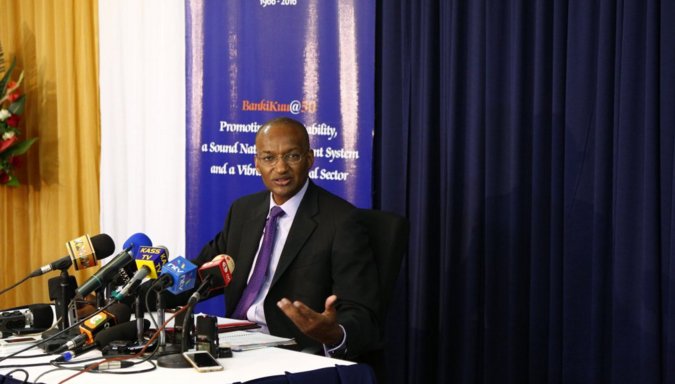The Central Bank of Kenya (CBK) is unlikely to tighten monetary policy further at the end of this month as it looks to keep interest rates in check and mitigate against a looming slowdown in the economy and depressed credit growth.
The CBK’s monetary policy committee (MPC) meets on May 29 at a time headline inflation has shot up to 11.48 per cent, well above the preferred ceiling of 7.5 per cent. This is mainly driven by increases in cost of food—due to drought—and fuel as crude prices recover in the international market.
The CBK in its May 5 Weekly bulletin said that food inflation increased significantly, largely driven by increases in prices of vegetables, flour, grains and milk. “Food inflation increased to 19.5 per cent in April 2017 from 17.2 per cent in March 2017 while fuel inflation increased marginally to 3.7 per cent in April 2017 from 3.3 per cent in March 2017, mainly driven by increases in the cost of rent and electricity. However, the Non Food Non Fuel inflation declined marginally to 4.3 per cent in April 2017 from 4.5 per cent in March 2017”.
Whereas the surge in headline inflation would ordinarily necessitate monetary tightening, I view chances of a rate rise in the next meeting as remote. In view of recent interest rate cap law which cap the maximum amount of interest banks should charge to borrowers and also interest to pay depositors, a hike in the benchmark rate will occasion a rise in commercial bank lending rates at a time when the government is aggressively engaging efforts to lower the cost of credit. The other challenge is if the rate is raised, there are number of potential borrowers who qualify at the current rate but if its raised this cohort is locked off.
Being an election year, there is looming slowdown of the economy between the remaining part of quarter two, a fact that the CBK will be keen to mitigate through accommodative policy.
The governor indicated that he was more concerned about the slowdown in private sector credit growth, which came down to 4.3 per cent in December 2016 (year-on-year) compared to 16.8 per cent at the beginning of last year.
The CBK considers credit growth rate of between 12 and 15 per cent to be ideal to stimulate economic growth.
Dr Njoroge also said that the MPC would likely allow for the initial shock of the higher food and fuel inflation to filter through before looking at further impact and making a decision based on the numbers, “Overall inflation accelerated further to 11.5 per cent in April 2017 from 10.3 per cent in March 2017, on account of continued increase in food prices. The increase in overall inflation was reflected by increased inflation in the “Food and Non Alcoholic Beverages”. May 5 CBK weekly bulletin.
With definitely competing circumstances ie high inflation, low credit growth, economic slowdown and a stable shilling I expect MPC to leave rate unchanged.
Paul W.Theuri.
Economic Analyst.



